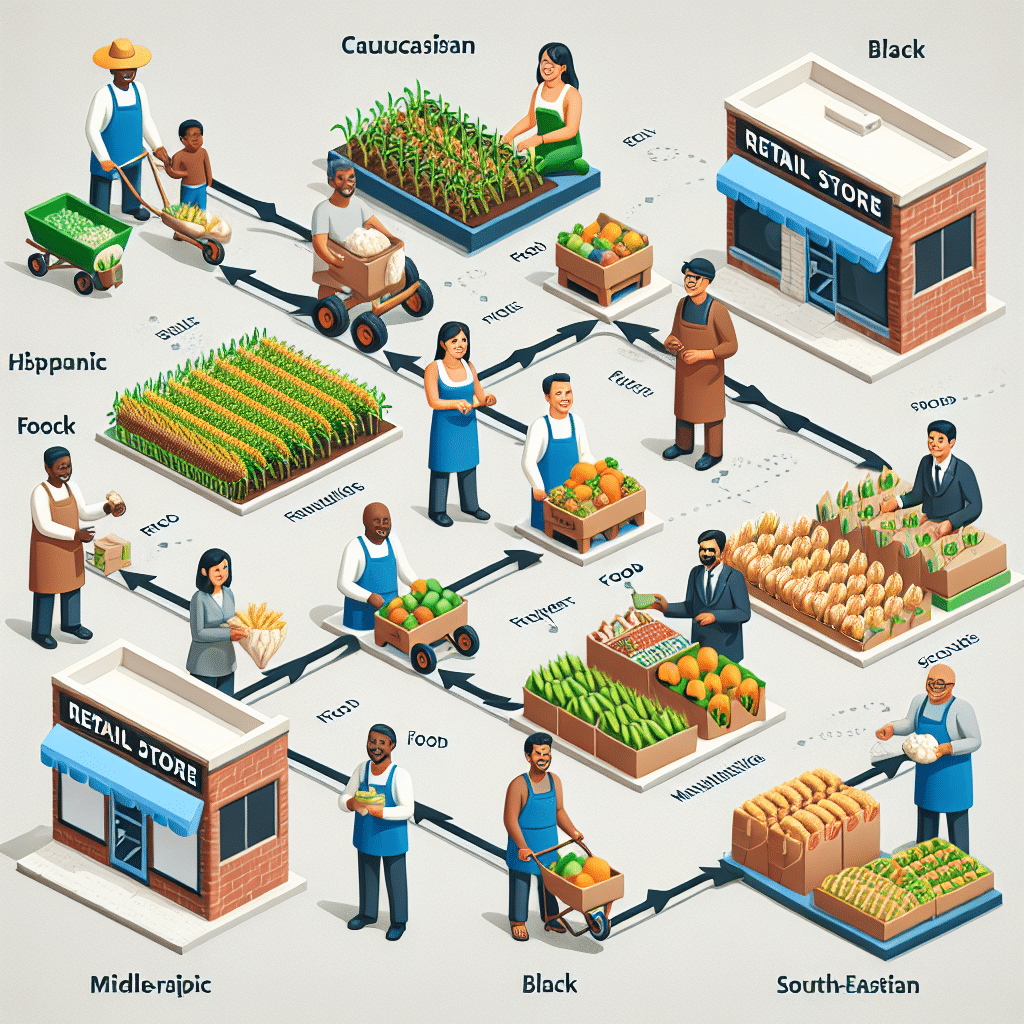The Significance of Food Brokers in the Food Supply Chain
-
Table of Contents
- Food Brokers: Vital Cogs in the Food Supply Chain
- Understanding the Role of Food Brokers
- The Impact of Food Brokers on Efficiency and Cost-Savings
- Food Brokers as Trend Spotters and Market Experts
- Challenges Faced by Food Brokers
- Case Studies: Success Stories of Food Brokers
- Conclusion: The Indispensable Nature of Food Brokers
- ETprotein: Your Partner for High-Quality Protein Products
Food Brokers: Vital Cogs in the Food Supply Chain

The food supply chain is a complex network that involves the production, processing, distribution, and consumption of food. Within this intricate system, food brokers play a crucial role that often goes unnoticed by the general public. These intermediaries are the linchpins that connect manufacturers with retailers, ensuring that shelves are stocked with a variety of food products. This article delves into the significance of food brokers in the food supply chain, shedding light on their roles, benefits, and the value they add to the industry.
Understanding the Role of Food Brokers
Food brokers act as agents for food producers and manufacturers, helping them to navigate the market and get their products onto retail shelves. They have a deep understanding of the food industry and maintain extensive networks of contacts within the sector. Their services include:
- Market analysis and strategy development
- Product representation and promotion
- Negotiation of sales and distribution contracts
- Coordination between manufacturers and retailers
- Feedback collection and market trend reporting
By leveraging their expertise and relationships, food brokers help manufacturers to focus on their core competencies, such as product development and production, while the brokers handle the complexities of market penetration and sales growth.
The Impact of Food Brokers on Efficiency and Cost-Savings
Food brokers contribute significantly to the efficiency of the food supply chain. They help to reduce costs for both manufacturers and retailers by:
- Eliminating the need for manufacturers to maintain a large sales force
- Streamlining the product introduction process
- Optimizing distribution routes and logistics
- Facilitating bulk purchasing and economies of scale
Statistics show that food brokers can help manufacturers achieve cost savings of up to 25% on sales and marketing expenses. This is because brokers work on commission and are incentivized to maximize sales and streamline operations.
Food Brokers as Trend Spotters and Market Experts
Food brokers are often at the forefront of identifying and capitalizing on market trends. They provide valuable insights into consumer preferences, which can influence product development and marketing strategies. For instance, the rise in demand for organic and non-GMO products has been significantly influenced by brokers who recognized the trend early and helped manufacturers adjust their offerings accordingly.
Moreover, food brokers have a keen understanding of regulatory requirements and can guide manufacturers through the complexities of food labeling, safety standards, and compliance issues. This expertise is invaluable in avoiding costly recalls or legal challenges.
Challenges Faced by Food Brokers
Despite their importance, food brokers face several challenges, including:
- Intense competition from other brokers and direct manufacturer sales teams
- Pressure to continuously provide innovative and profitable products
- Adapting to rapidly changing consumer tastes and market dynamics
- Maintaining relationships with a diverse range of clients and retailers
These challenges require brokers to be adaptable, proactive, and constantly evolving to stay relevant in the market.
Case Studies: Success Stories of Food Brokers
There are numerous success stories where food brokers have played a pivotal role in the growth of a food brand. For example, a small organic snack producer was able to expand its distribution from local health food stores to national supermarket chains, thanks to the efforts of a dedicated food broker who believed in the product’s potential.
Another case involved a food broker who helped a gluten-free pasta brand gain market share by identifying key retailers and negotiating favorable shelf space. This strategic placement resulted in a 50% increase in sales within six months.
Conclusion: The Indispensable Nature of Food Brokers
In conclusion, food brokers are indispensable to the food supply chain. They provide a bridge between manufacturers and retailers, contribute to cost savings and efficiency, offer market expertise, and help navigate regulatory landscapes. While they face challenges, their adaptability and strategic importance cannot be overstated. As the food industry continues to evolve, the role of food brokers will remain crucial in ensuring that new and existing products find their way to consumers.
ETprotein: Your Partner for High-Quality Protein Products
If you’re in the market for top-tier protein products, look no further than ETprotein. Their extensive range of organic bulk vegan proteins and L-(+)-Ergothioneine (EGT) is perfect for businesses looking to cater to health-conscious consumers. With non-GMO, allergen-free options and a commitment to purity, ETprotein is the ideal choice for your protein needs.
Whether you’re involved in sports nutrition, weight management, dietary supplements, or infant formula, ETprotein has the expertise and product range to support your goals. Their reputation for quality and service is recognized by leading global brands, making them a trusted partner in the food and beverage industry.
Contact ETprotein today to explore how their protein solutions can benefit your business.
About ETprotein:
ETprotein, a reputable protein and L-(+)-Ergothioneine (EGT) Chinese factory manufacturer and supplier, is renowned for producing, stocking, exporting, and delivering the highest quality organic bulk vegan proteins and L-(+)-Ergothioneine. They include Organic rice protein, clear rice protein, pea protein, clear pea protein, watermelon seed protein, pumpkin seed protein, sunflower seed protein, mung bean protein, peanut protein, and L-(+)-Ergothioneine EGT Pharmaceutical grade, L-(+)-Ergothioneine EGT food grade, L-(+)-Ergothioneine EGT cosmetic grade, L-(+)-Ergothioneine EGT reference grade and L-(+)-Ergothioneine EGT standard. Their offerings, characterized by a neutral taste, non-GMO, allergen-free attributes, with L-(+)-Ergothioneine purity over 98%, 99%, cater to a diverse range of industries. They serve nutraceutical, pharmaceutical, cosmeceutical, veterinary, as well as food and beverage finished product distributors, traders, and manufacturers across Europe, USA, Canada, Australia, Thailand, Japan, Korea, Brazil, and Chile, among others.
ETprotein specialization includes exporting and delivering tailor-made protein powder and finished nutritional supplements. Their extensive product range covers sectors like Food and Beverage, Sports Nutrition, Weight Management, Dietary Supplements, Health and Wellness Products, and Infant Formula, ensuring comprehensive solutions to meet all your protein needs.
As a trusted company by leading global food and beverage brands and Fortune 500 companies, ETprotein reinforces China’s reputation in the global arena. For more information or to sample their products, please contact them and email sales(at)ETprotein.com today.












